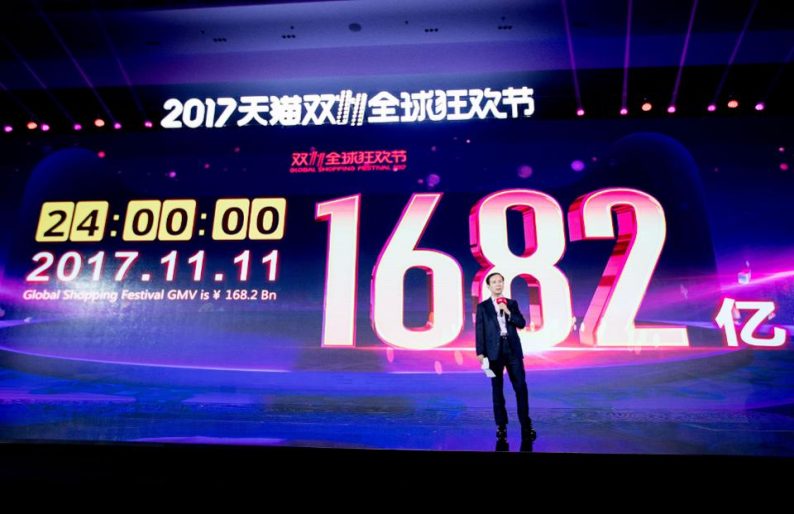
After 24 hours of swiping on ‘Singles Day’ bargains, Chinese online shoppers once again broke records for e-commerce giant Alibaba.
(Photo credit: STR/AFP/Getty Images)
Alibaba’s (BABA) Singles’ Day Shopping Festival is like no other. It’s a combination of commerce, entertainment and an exuberant celebration of consumerism.
Retail as entertainment is one of the hallmarks of Singles Day. A new word, “retail-tainment,” was created just for that. At the gala counting down to the opening of the sale before midnight November 11, a cohort of top celebrities including Nichole Kidman, Pharrell Williams, Chinese movie star Fan Bingbing put on an extravaganza for a cheering audience. Jack Ma, Alibaba’s charismatic founder, also made a surprise appearance as the “retail-tainment-in-chief.”
It’s almost like the Academy Awards, a New Year’s Celebration, and the Superbowl all in one. During the countdown to Singles Day, consumers enjoyed “See Now Buy Now” fashion shows, and used interactive apps to download coupons, raffle tickets, gift certificates, etc. All this created excitement and anticipation for the sales to begin.
At the zero hour, China’s newly-minted middle class consumers were all in. Consumers from other countries also joined the party. Within 24 hours, they splurged on $25 billion of purchases, a 40% increase from last year.
Here are the mind-boggling numbers that sum up the day:
140,000: brands participating in the shopping festival. This is more than a 40% increase from last year. Alibaba is using what they call “uni-marketing,” a data driven marketing technique, to help brands target the right consumers. Major international brands that enjoyed success include P&G, Estee Lauder, Starbucks, Bose, Nike, and GAP. Many small brands are also rushing in.
15 million: products listed. Top selling products were in wellness and baby products categories such as multivitamins, milk powder and diapers. This is no surprise as health and safety are top concerns of Chinese consumers. Products from Japan, U.S., Australia, Germany and South Korea were most loved by Chinese consumers.












Leave A Comment